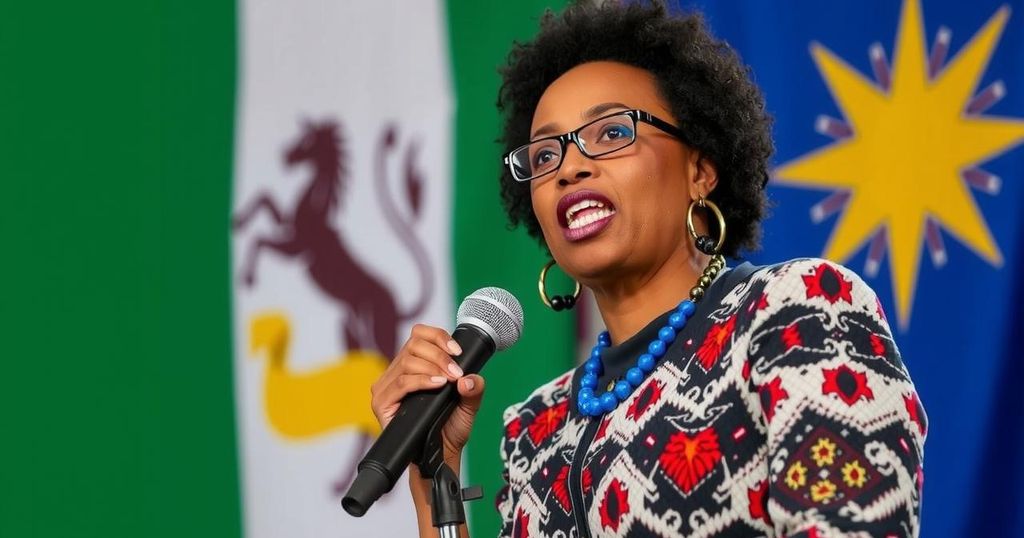Namibia’s Vice President Leads Controversial Presidential Election

Vice President Netumbo Nandi-Ndaitwah is leading the presidential election in Namibia amid allegations of electoral misconduct, including a vote extension due to shortages of ballot papers. The opposition has expressed intent to challenge the results legally. Nandi-Ndaitwah seeks to become the first female president, while public discontent with SWAPO’s governance is escalating due to economic hardships and corruption claims.
In the recent presidential election in Namibia, early results indicate that Vice President Netumbo Nandi-Ndaitwah of the ruling South West Africa People’s Organization (SWAPO) is leading amid significant electoral challenges. These issues, which included a shortage of ballot papers, caused voting to be extended by three days. The opposition has raised concerns over the legality of the vote extension and has reported intentions to challenge the election results in court. Nandi-Ndaitwah is vying to become the nation’s first female leader, having secured approximately 56% of the votes counted thus far, while her closest competitor, Panduleni Itula from the opposition, trails with around 27%.
Despite SWAPO’s historical governance since Namibia’s independence in 1990, the party faces public dissatisfaction due to rising unemployment and corruption allegations. Voter frustration is particularly pronounced among younger demographics who are affected by these economic challenges. This sentiment has prompted the Independent Patriots for Change and other opposition parties to prepare legal actions against the electoral process, stressing the importance of maintaining democratic integrity in the country. The Electoral Commission of Namibia has stated no rerun of the election will occur, even amid these disputes.
Namibia has a reputation as one of southern Africa’s more stable democracies; however, the recent electoral process has faced difficulties that threaten this image. The country’s governance under SWAPO since 1990 has been characterized by relative stability, although recent challenges such as high unemployment rates and allegations of corruption have begun to undermine public confidence in the ruling party. With ongoing discontent evident in voter sentiment, the implications of the election results may have broader repercussions for both the government and Namibian society at large.
The unfolding situation in Namibia highlights significant electoral challenges that could impact the democratic processes in the country. As Vice President Netumbo Nandi-Ndaitwah leads in early voting results, opposition parties are poised to legally contest the election due to perceived malpractices. The public’s dissatisfaction with SWAPO’s governance, particularly around economic issues, underscores an urgent need for change and transparency within the political landscape.
Original Source: apnews.com






